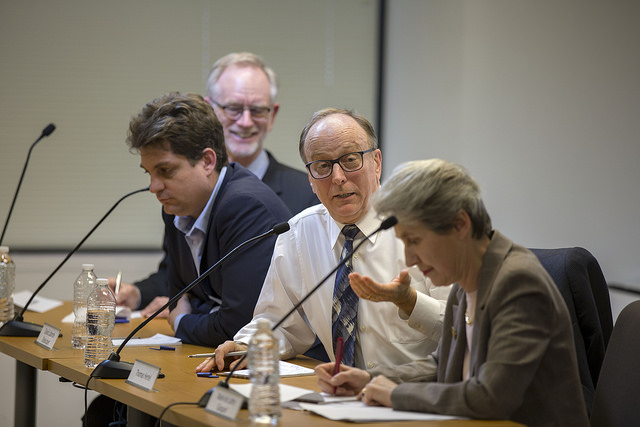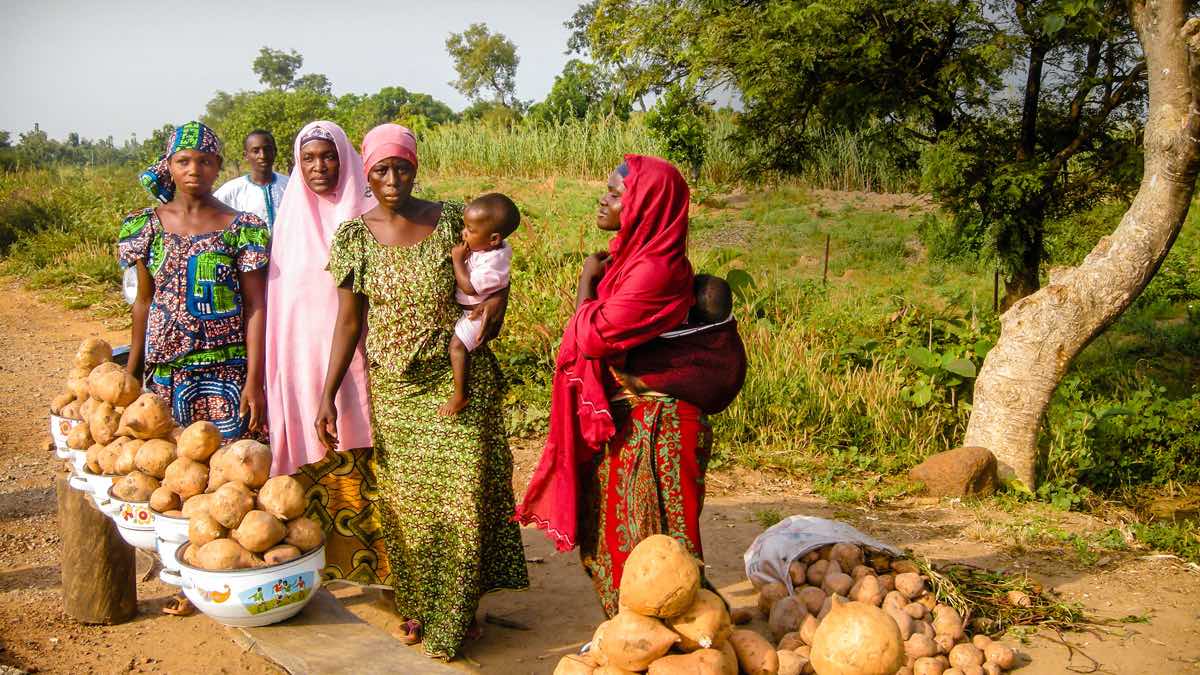“How to feed the world in 2050” is a question many researchers and policymakers are now examining as developing countries map strategies for achieving food security in the coming decades. Participants in a Jan. 18 IFPRI seminar looked at some of the diverse approaches research must take.
“Global security is at stake unless rapid action is taken to address food security challenges,” said Marie de Lattre-Gasquet of the French Agricultural Research Center for International Development (CIRAD), who is also Senior Foresight Scientist for the CGIAR consortium. Many policy makers have urgent questions regarding their possible food futures, she said, and they need new tools and approaches to make the right investments and interventions.
IFPRI is actively working on these issues via its Global Futures and Strategic Foresight program, supported by the CGIAR Policy, Institutions and Markets program and other donors, moderator Siwa Msangi, an IFPRI Senior Research Fellow, told participants in the seminar, “Visioning the Future of Food Security: Critical Drivers to 2050, Key Vulnerabilities, and Needed Policy Interventions.”
The Agrimonde-Terra foresight study, conducted by scientists from CIRAD and the French National Institute for Agricultural Research (INRA), is another key effort, de Lattre-Gasquet said. It focuses on identifying how evolving patterns of land use, socioeconomic change and other drivers affect food security and food systems at global and regional levels. Using the example of Africa South of the Sahara, de Lattre-Gasquet described the critical components needed to move towards the more desirable pathway outlined in the report’s “healthy” scenario. It will take multi-stakeholder cooperation to achieve the transformation needed to change course away from the current trajectory, she said. Among the necessary conditions are secure access to land, credit, and infrastructure; diversity of seeds available to everyone; and intellectual property rules favoring diversity in agriculture and the broader landscape.
David Laborde, a Senior Research Fellow at IFPRI, said that quantitative food security research requires knowledge and insights from different disciplines and stakeholders coming together on common ground. “If we want to design policy action, we must understand the drivers … it is critical to have a rigorous quantitative assessment linked to a qualitative story,” Laborde said, citing the EU-funded FoodSecure project that he worked on with multiple institutions.
Injecting a different perspective, Thomas Hertel, Distinguished Professor of Agricultural Economics at Purdue University, explained that with projected slower population growth, the world will not have to run as fast to keep up in the supply and demand foot race to feed itself. Much population growth is taking place in poorer countries, he said, and that results in a lower global burden to the food system due to the less-intensive consumption habits of those regions. Policy makers and scientists must also consider the possibility of food prices falling, rather than rising or remaining high in the future, Hertel cautioned. We do not know what will happen in markets, or how consumers may respond to increased income, a key driver of food market dynamics.
While studies must look forward, IFPRI Senior Research Fellow Will Martin stressed the difficulty of attempting to predict the future. Rather, the scenario approach is a useful way to group together key drivers of change and potential trends that could unfold, as a way of helping scientists think about the future and to “organize our ignorance,” he said. Martin added that emerging patterns of income convergence he has observed in his own studies point to a stronger potential for inclusion and income growth that will have their own significant impacts on future demand and food prices.
Katarlah Taylor is an IFPRI Information and Knowledge Management Facilitator; Siwa Msangi is a Senior Research Fellow in IFPRI’s Environment and Production Technology Division.







